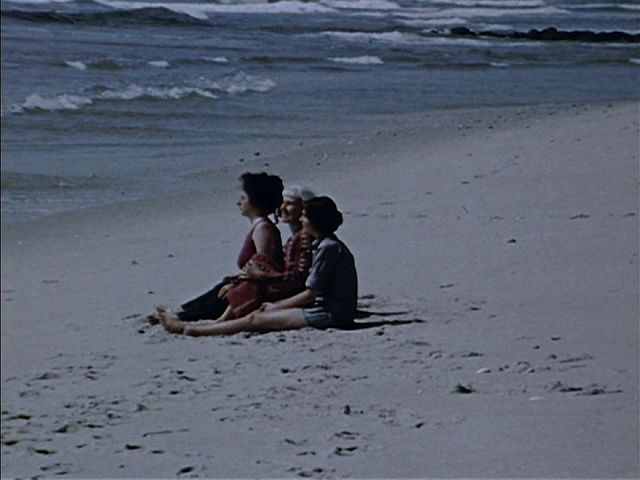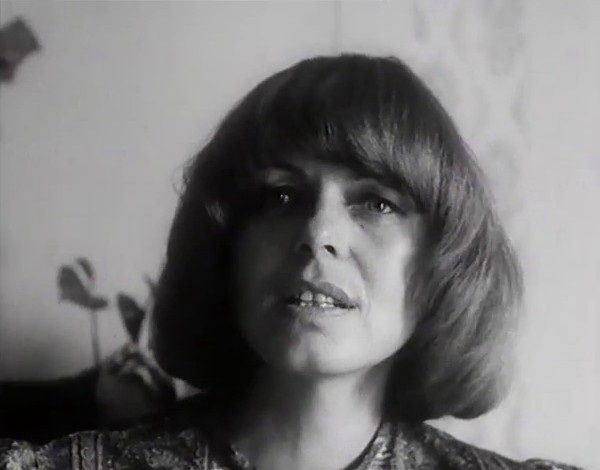Cinema
Three Lives | Otázky pro dvě ženy
Sat, Jun 25–Sat, Aug 27, 2022
Every Saturday
3.15 pm
Admission with exhibition ticket

Three Lives
D: Kate Millett, USA 1971, 70 min, English OV
Made by an all-woman crew and borrowing its title from Gertrude Stein’s 1909 book, Three Lives brings the dynamics of the second-wave consciousness-raising group into the cinema. Three very different white women speak autobiographically and candidly for the camera: Mallory Millett-Jones, the director’s sister, who has recently left her husband and child; Lillian Shreve, a chemist married for twenty-three years; and Robin Mide, a twenty-one-year-old artist. Three Lives was released one year after the publication of Kate Millett’s Sexual Politics, a book the New York Times ventured would become the “Bible of Women’s Liberation,” and was partially financed by sales of its paperback edition.

Otázky pro dvě ženy (Questions for Two Women)
D: Drahomíra Vihanová, Czechoslovakia 1985, 22 min, Czech OV with English subtitles
After her fiction feature debut, Zabita neděle (Squandered Sunday, 1969), was censored because of its depiction of a disaffected soldier, Drahomira Vihanova was restricted to working in the nonfiction field. For twenty years, until the Velvet Revolution enabled her return to fiction, she directed an array of documentary shorts, often with a focus on portraiture. Otazky pro dvěženy features two subjects of different generations who ostensibly have little in common: Alena Konečna, a chemist, and Anežka Zlatnikova, a poet and ticket seller at a train station. Vihanova, who features as a third protagonist, draws out commonalities between them, such as their love of creativity and belief in perseverance.